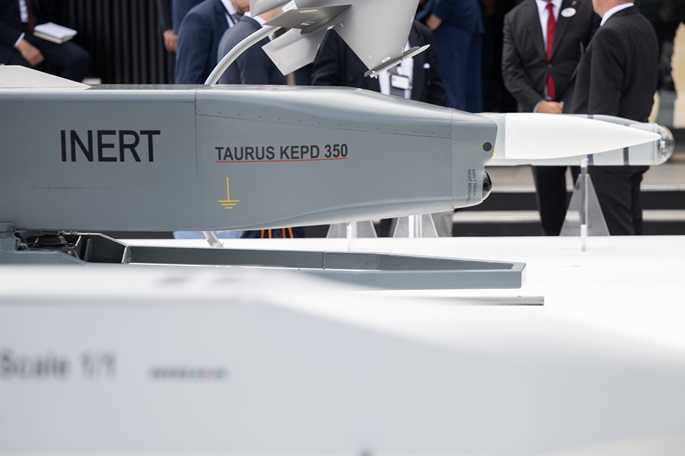Scholz rules out delivery of long-range weapons to Ukraine
Published : 15 Sep 2024, 21:41
Updated : 15 Sep 2024, 21:44
German Chancellor Olaf Scholz has ruled out the delivery of long-range precision weapons to Ukraine in the future, regardless of decisions made by alliance partners.
At a citizens' dialogue in Prenzlau in the eastern German state of Brandenburg on Saturday, Scholz reiterated his no to the delivery of Taurus cruise missiles, stating that this would entail "a great risk of escalation" of the Ukraine conflict.
The Taurus cruise missiles, with a range of around 500 kilometres, would put targets in Moscow within Ukraine's sights.
"I said no to that," Scholz asserted. "And of course that also applies to other weapons, if we had supplied them, which could reach this long distance."
"That remains the case," Scholz said, adding: "Even if other countries decide differently."
President Volodymyr Zelensky has been pressing Ukraine's allies for long-range weapons in order to be able to attack Russian logistics and military airfields of the air force far behind the front line, even on Russian territory.
The longest-range weapon supplied by Germany is the Mars II rocket launcher, which can hit targets 84 kilometres away.
NATO partners the US, Britain and France have supplied cruise missiles with ranges of up to 300 kilometres.
A discussion is currently underway as to whether the use of these weapons against targets on Russian territory should be authorised in principle.
However, US President Joe Biden and British Prime Minister Keir Starmer did not yet reach a decision on this at a meeting in Washington on Friday.
Russian President Vladimir Putin has stated that he would consider the use of long-range Western precision weapons against targets deep inside Russian territory to be NATO's involvement in the war.
"This will mean that the countries of NATO, the US, the European countries will fight with Russia," Putin warned.
Russian UN Ambassador Vasily Nebenzia even referred to Russia's nuclear weapons in the United Nations Security Council.
(By Verena Schmitt-Roschmann and Michael Fischer.)


